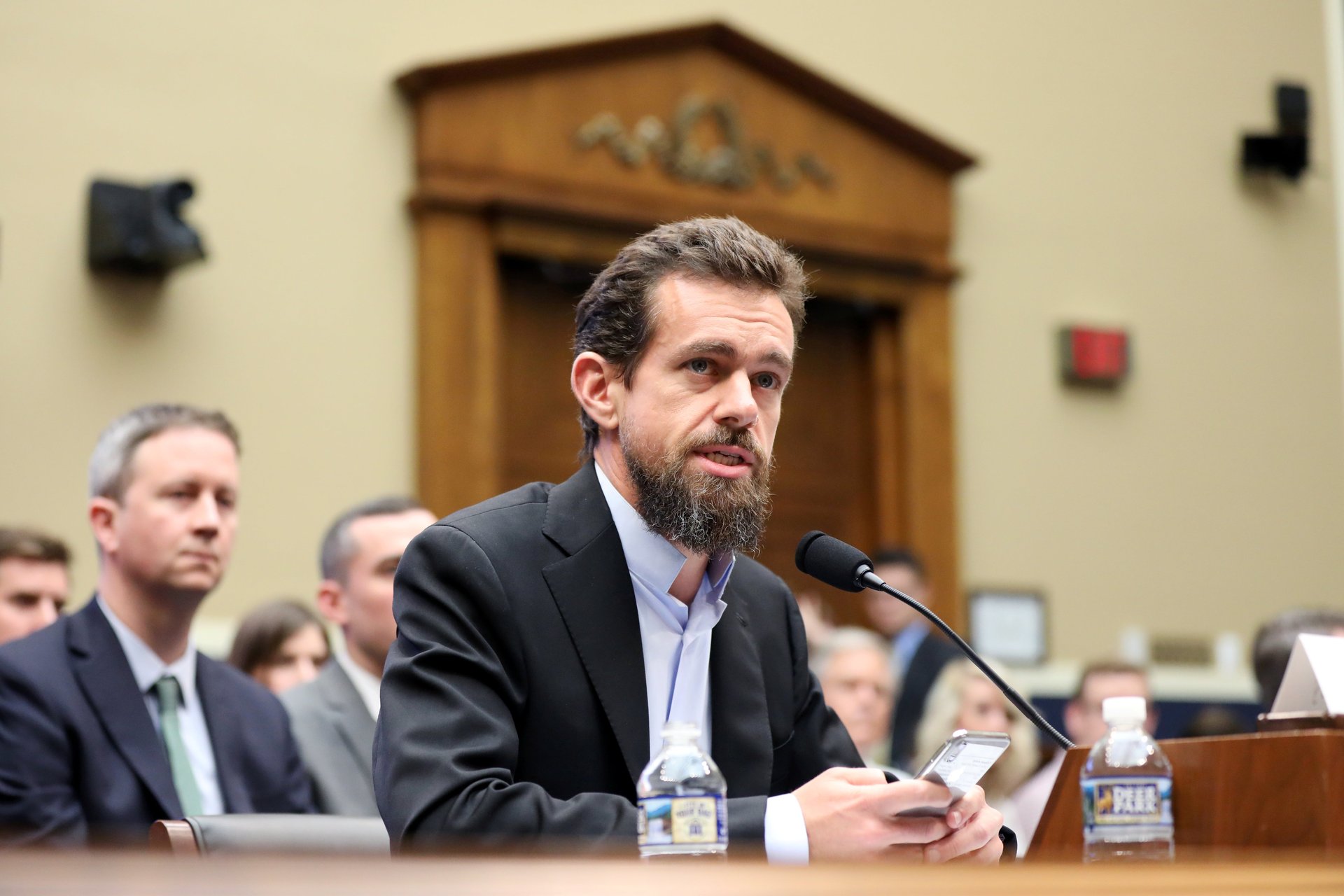Three ways Twitter’s political ad ban could backfire and help bad actors
If Twitter’s new ban on political ads works, the platform will dodge hard questions over whether to fact-check politicians—which have dogged Facebook for a few weeks now.


If Twitter’s new ban on political ads works, the platform will dodge hard questions over whether to fact-check politicians—which have dogged Facebook for a few weeks now.
But if it doesn’t work, it could destabilize political discourse and help propagandists by making it harder to track—and rebut—political lies.
Twitter’s first challenge is to define what’s political.
“The definition of political is not an easy one (I might argue that is the hardest part of the problem),” said Erika Franklin Fowler, a government professor at Wesleyan University who studies political advertising.
Twitter’s legal, policy, and trust-and-safety lead Vijaya Gadde tweeted that it’s sticking to its long-standing definition of political ads as those that mention a candidate or that “advocate for or against legislative issues of national importance (such as: climate change, healthcare, immigration, national security, taxes).”
But what Twitter means by that has been unclear, practically. Last year issue ads from Explore Offshore, an oil-industry-funded campaign in favor of offshore drilling, weren’t considered political (though they are now). Ads from a Microsoft-linked group in favor of increasing rural broadband connectivity still aren’t considered political.
Gray areas abound. How about ads raising money to help refugees? Or discussing the availability of abortion? What about ads about local tax rules, like brewing battles in many cities over Airbnb rentals? Or Uber’s ads featuring civil rights figures whenever politicians consider limiting the company?
Gadde promised “a few well defined exceptions (like voter registration efforts)” that would still be allowed.
Twitter’s value for political advertisers differs from Facebook’s. While Facebook is a broad platform that many undecided or unengaged voters frequently visit, politicians, activists, and journalists swarm Twitter like moths to a lightbulb. While Twitter has said it sold only about $3 million worth of political ads in the 2018 election cycle (PDF), the demographics of its user base mean it’s easier for shady groups to influence the political class’s opinions on niche issues—which political ad watchers, including myself, have seen in practice.
Twitter’s second issue: enforcement.
“Once you have a definition, the challenge moves to detection and enforcement, which are also hard,” says Fowler.
Declaring political ads against the rules doesn’t mean they won’t show up.
For an example of what happens when a ban is poorly enforced, take Facebook’s behavior in Washington State. That state has long-standing campaign finance rules that require anyone selling political ads to disclose the exact amount of the ad buy. Facebook’s ad transparency portal only discloses ranges, so it doesn’t comply, a fact that was exposed by Seattle alt-weekly The Stranger.
After settling a lawsuit last year from Washington’s attorney general, Facebook agreed to ban political ads about Washington State elections.
But this year it has nevertheless sold tens of thousands of dollars worth of political ads in local races. In one case, the Stranger reported, Facebook blocked one Seattle city council candidate from running ads while accepting the (supposedly banned) ads from one of her opponents. This has, some say, destabilized those races by making access to advertising uneven.
Washington state regulators brought administrative charges early in October of this year against Facebook for allegedly violating the rule; a Facebook spokesperson told the Stranger that it is “working cooperatively with the PDC [the Washington state Public Disclosure Commission] in an effort to resolve this matter.”
The third issue: transparency.
Finally Twitter, like Facebook, Google, and Snapchat, has created a transparency website allowing anyone to see what messages political groups are paying to push. Once Twitter stops accepting political ads, that transparency site will presumably go dark. (The company didn’t respond to a request for comment.)
If political ads sneak through, then they won’t be archived anywhere. That means the public could have less visibility into messages pushed by lobbying groups or politicians.